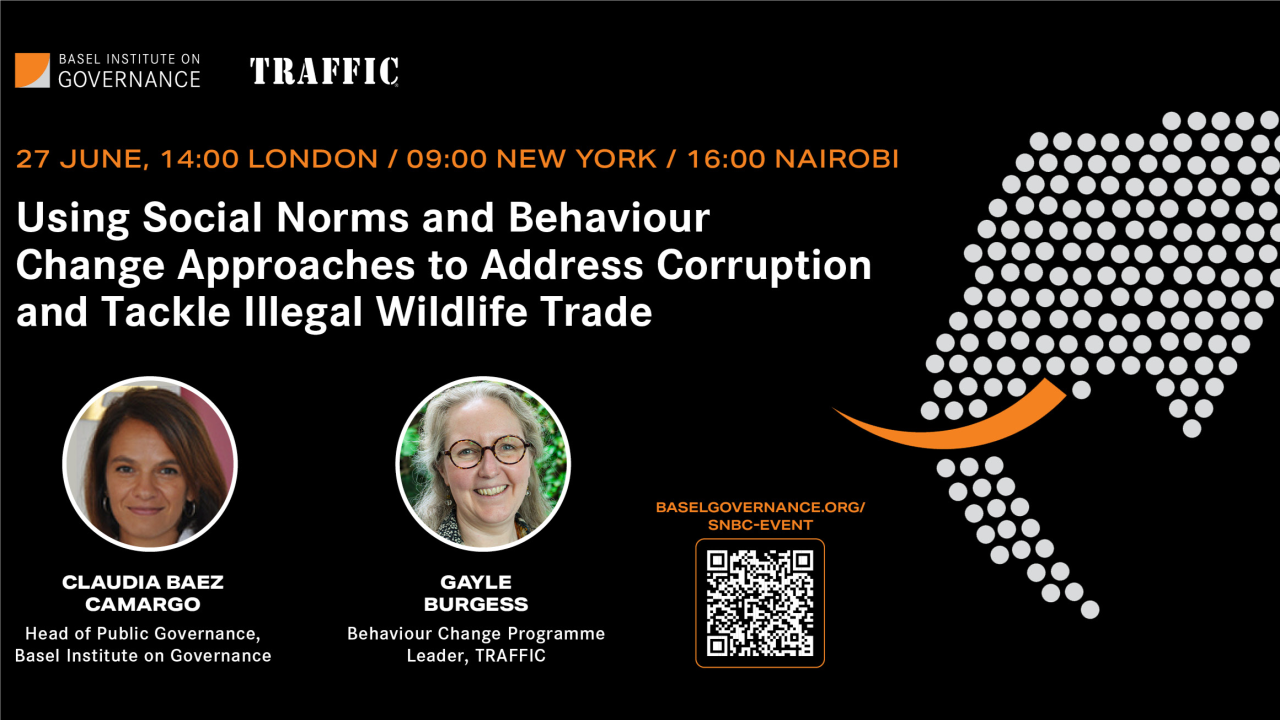Social norm and behaviour change approaches to address corruption and tackle illegal wildlife trade
Can social norm and behaviour change approaches help to reduce corruption related to illegal wildlife trade (IWT)? Very possibly. SNBC initiatives have been shown to help combat diverse corruption problems, although for those related to IWT and other areas of conservation and natural resource management, the evidence for doing so is sparse.
At this practitioner-focused webinar, Claudia Baez Camargo, Head of Public Governance at the Basel Institute on Governance, and Gayle Burgess, Behaviour Change Programme Leader at TRAFFIC, presented the key findings of their recently published study on the topic, including:
- what social norm and behaviour change (SNBC) approaches are;
- their use in fighting corruption;
- the framework to assess entry points for behavioural interventions; and
- how practitioners can apply these insights to effectively reduce corruption related to IWT.
Sabri Zain, Director of Policy at TRAFFIC, and Robert Lugolobi, Independent Consultant, Uganda, gave their insights into how SNBC approaches can be applied in programmes targeting the corruption that facilitates IWT.
Saba Kassa, Senior Public Governance Specialist at the Basel Institute on Governance, moderated the panel.
The study, "Behavioural drivers of corruption facilitating illegal wildlife trade – Problem analysis and state of the field review" – has been produced in association with the Targeting Natural Resource Corruption (TNRC) project.




